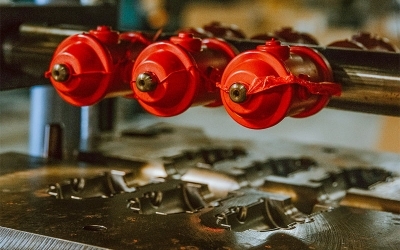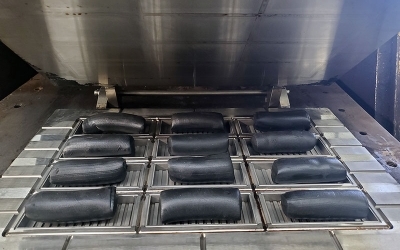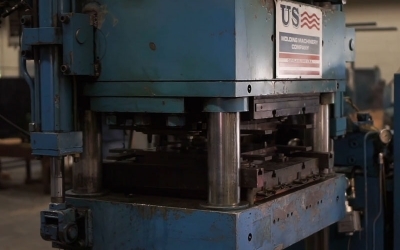What is Silicone Rubber? Properties, Applications, & Uses

What is Silicone Rubber?
Silicone rubber is a synthetic rubber elastomer that is frequently used for many applications across many different industries. Silicone is different from silicon: silicon is an element, while silicone is a polymer that contains silicon, among many other elements. There are different variations of the silicone polymer, with varying combinations of silicon with carbon, hydrogen, oxygen, and other molecules. Properties can vary depending on the organic chemical groups and the overall structure of the molecules. Specifically, the silicon-oxygen bond in silicone’s structure gives it many of its properties, including resistance to high temperatures, electrical insulation, and ozone resistance.
Silicone has many applications, due to its temperature resistance, durability, and non-toxicity, among many other properties. This includes medical uses, food processing and storage, voltage line insulators, and extreme industrial applications.
Properties of Silicone
Silicone has many advantageous properties that make it a great choice for a wide range of applications. As with any polymer, there are also some disadvantages which may not make it the perfect choice for every application. Be sure you understand all of the pros and cons of silicone before choosing it for your specific application. Read more about choosing the right type of rubber for your manufacturing needs.
Advantages
Silicone is a durable, flexible elastomer with high temperature resistance, able to withstand temperatures ranging from -150°F(-100°C) to 480°F (250°C). It has strong electrical insulation properties, making it ideal for transformers, voltage line insulators, and other electrical equipment. It is chemically stable and weather resistant, able to to withstand extended exposure to oxygen, wind, rain, UV, and ozone. Silicone’s low toxicity also makes it a safe elastomer for food and medical applications. Since being approved by the FDA in 1979, it has been commonly found in cookware, kitchen utensils, and food storage containers. In the medical field, silicone is used in pacemakers, stents, respiratory masks, and feeding tubes, among many other uses.
Disadvantages
Like any other polymer, silicone is not perfect and has some disadvantages. It has poor oil resistance, and can swell and lose its shape and form after extended exposure to oil. It also has poor tear strength, though adding other ingredients to alter the chemical makeup can improve its tear resistance. Lastly, silicone is one of the more expensive elastomers. Its high quality makes it a premium elastomer, but this comes with a higher price. This will have to be a major consideration when deciding on which rubber to choose for your application.
Common Applications of Silicone
Silicone is one of the most commonly used rubber polymers. Its combination of strength, durability, together with its overall safety, make it extremely popular in the food and medical spaces. Additional examples of silicone applications include:
- Aerospace. Silicone’s durability and ability to withstand high temperatures makes it a good material for use for aerospace applications, including in protective coating, sealant, engine components, and electrical equipment.
- Automotive. Just as with aerospace, silicone’s properties allow it to be a great material in the automotive industry as well. It is often found in gaskets, sealant, and various hoses and tubing.
- Construction. Silicone’s durability together with its resistance to wind, rain, UV, and ozone make it a strong choice for construction uses. This includes adhesives, sealants, and coatings.
- Medical. Many silicone recipes are FDA approved, making it a safe material to use for different types of medical equipment, including pacemakers, stents, respiratory masks, and feeding tubes.
- Food packaging and processing. As with its use in the medical industry, silicone is used for food packaging and processing due its overall safety and durability. It is often found in various storage containers and kitchen utensils and appliances.
- Electronics. Silicone is found in many electronics, often used in sealants, adhesives, and coatings for various circuits, connectors, and tubes in a range of different electronic devices.
Contact Us Today
Silicone is a high quality rubber polymer and may be the right choice for your specific application. Get in touch with us today to see how we can help you make the right choice for your products.


